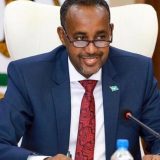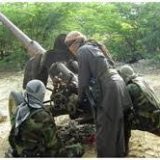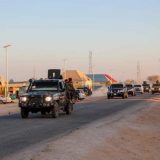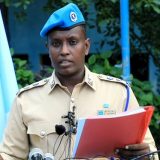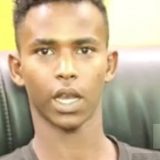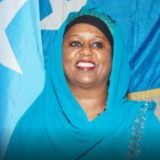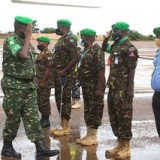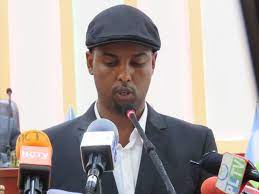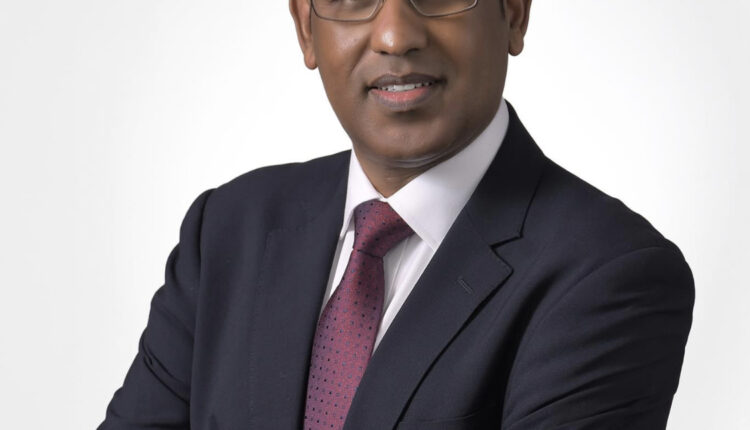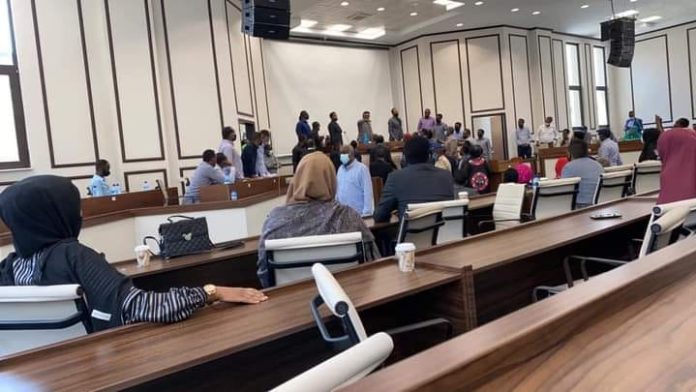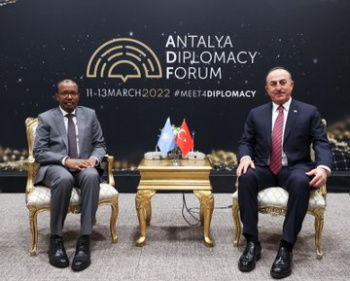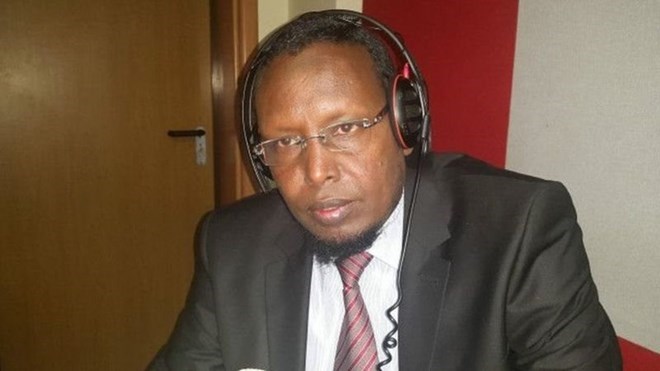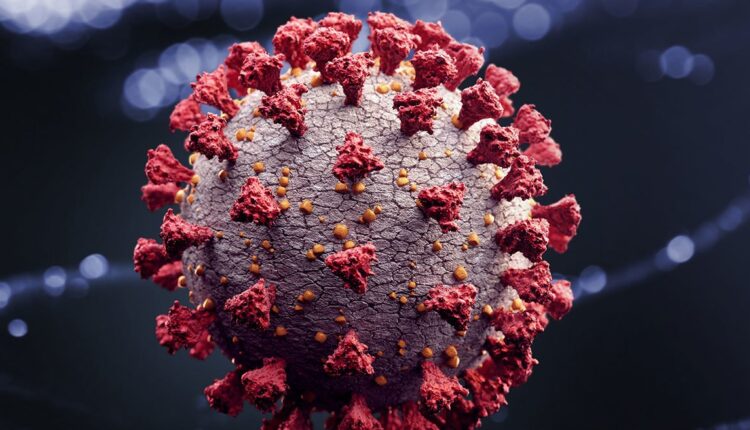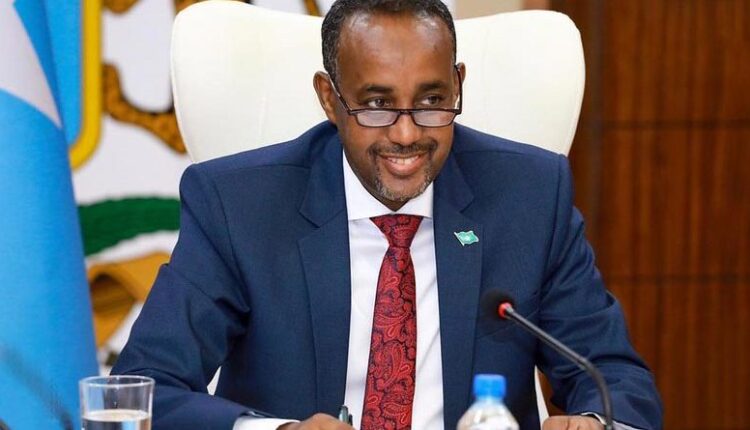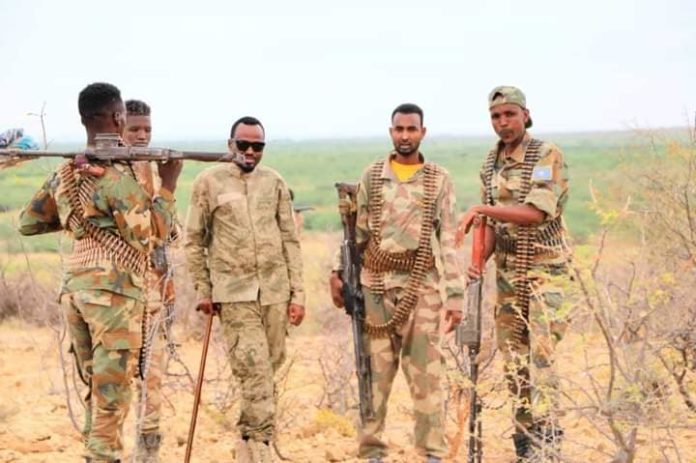Interview with Nicholas Kay, UN Envoy for Somalia
6 February 2015 – Somalia, which endured over two decades of war and humanitarian crises, turned a new page in its history in 2012 with the establishment of a representative Government, the approval of a draft constitution, and the weakening of the militant insurgency. The Horn of Africa nation is moving, albeit slowly, on a path toward peace, reconciliation and stability.
Leading the UN’s efforts in assisting the country is Nicholas Kay, the Special Representative of the Secretary-General, who has been at the helm of the UN Assistance Mission (UNSOM) for almost two years. In an interview with the UN News Centre, the British national explained why 2015 will be a crucial year for Somalia, the critical needs right now, as well as his hopes for the year ahead for the country and its people.
News Centre: During his visit last October, Secretary-General Ban Ki-moon said Somalia was finally waking from a ‘long nightmare.’ What have been the major changes over the pasYou’re not going to have lasting peace and security in Somalia unless you have a functioning, inclusive State.t year or so?
Nicholas Kay: Well, in the last year, in 2014, in Somalia, I think there were two very significant developments. First, it made good progress in terms of becoming a federal State by establishing interim regional administrations in the south-west and in the south of the country. These are the building blocks of what will be the eventual federal Somalia. That was very encouraging. There’s more to be done in 2015 but that was good.
The second, I think, was the security progress. Jointly, the African Union forces (AMISOM) together with the Somali national army made some good progress against Al-Shabaab. At least 16 important towns across the country were recovered from Al-Shabaab. Therefore, the map of Somalia is transforming and has transformed in 2014 towards a federal State under Government control and governmental authority.
News Centre: What are the most critical needs right now for Somalia?
Nicholas Kay: Right now it is really [critical] to continue that political project of State-building without delay. You’re not going to have lasting peace and security in Somalia unless you have a functioning, inclusive State. There are some tasks this year that need to be accomplished – the review of the constitution, which will essentially be about how the centre shares power and resources with the federal member states, and then written in a constitution for the end of this year and to be put to a referendum next year. That’s an important process. It’s a bit behind schedule, so it needs to be accelerated. There is a lot more that also needs to happen. The people who’ve now been in towns and districts freed from Al-Shabaab need the Federal Government and the regional governments to start delivering for them some basic benefits and services… and that’s a big priority now for 2015 as well.
News Centre: What are the UN Mission’s priorities for 2015?
Nicholas Kay: 2015 should be a year of federalism and delivery, and the two are linked. So the UN needs to be more present in these emerging federal member states, in the regions, across Somalia. Now our centre of gravity is Mogadishu and it will remain there. But we need to establish a stronger presence in the regional capitals. We have small offices in Kismayo, in Baidoa, and we should shortly have in Beledweyne, but we need to enhance those, in partnership with the African Union.
News Centre: Aside from working in a volatile security environment, what are some of the challenges the Mission faces at the moment?
Nicholas Kay: The security environment is certainly always a challenge, and we take staff security and welfare very seriously. We will continue to do that. We’ve benefitted enormously from a UN Guard Unit provided by the Ugandans in the last year. We hope that will even be expanded in 2015. The other challenges are working obviously in a State which is recovering from 24 years of conflict and State failure. So institution, institutional capacity is very lacking.
There is also a challenge for development partners, for the humanitarian team, in particular, that this is an ongoing, very serious humanitarian crisis in Somalia. There are at least 760,000 people who are in need of food assistance each day. And thNews Centre: What impact has the political crisis between the President and the former Prime Minister had on the country’s political stability?
Nicholas Kay: It’s delayed progress on the State-building agenda certainly, and we are very anxious that the Parliament should approve the Cabinet list, which should come to it perhaps on Monday for a vote, so that they can establish a new functioning Cabinet and Government. And we hope that this Prime Minister and this Cabinet then will stay together until September 2016. There is no scope for further slippage in the timetables. Each day counts now.
The map of Somalia is transforming and has transformed in 2014 towards a federal state under government control…
News Centre: Can you explain what ‘Vision 2016’ is, and how international partners can fully support this effort?
Nicholas Kay: Vision 2016 is the Somalis’ own articulation of their political programme. It consists of forming federal member states, revising the constitution and introducing democratic elections by September 2016… It’s a huge, breath-taking piece of political engineering that Somalis have undertaken. But it is, I believe, the only way in which you’re going to secure a lasting peace in Somalia – if you have a functioning, inclusive federal state system established. e funding of course is getting increasingly more limited as Somalia competes with other crises in the world. It is very urgent that the humanitarian donors and supporters fund the humanitarian response plan in Somalia as fully as possible.
News Centre: Do you think the economic and humanitarian conditions in the country contribute to the political instability and insecurity, as well as provide fodder for groups such as Al-Shabaab?
Nicholas Kay: Absolutely. There is reasonable progress being made on the political, State-building track. There’s reasonable progress being made upon the security track, pushing back Al-Shabaab and reinforcing and building Somali national security forces. There’s more to be done on both those but the plans are there and the progress is being made. On the economic reconstruction and development track, there is a lot more that needs to be done
This is a country shattered by 24 years of civil war. It has immense needs for infrastructure, for roads, for electricity, for ports, etc. These will all become essential if you’re going to generate jobs and economic opportunities for Somalia’s young people – 70 per cent of the population under the age of 30; many of them have missed a generation of education. This is exactly the breeding ground that violent extremists exploit. So there is a need for a very strong economic reconstruction and development track as well.
News Centre: What efforts are being made to ensure the inclusion of women in the peace efforts?
Nicholas Kay: A huge amount of advocacy by the UN and other partners, the African Union in particular, is beginning to bear some fruit and we’re very hopeful that the next Cabinet for example will have potentially double the number of the women in the previous Cabinet. But these are still low numbers and there’s more that needs to be done. Parliament has about a 13 per cent, I think, representation of women, and we hope that in the elections in 2016 that we’ll see more.
News Centre: What are your hopes for Somalia for the coming year?
Nicholas Kay: My hopes are accelerated and even stronger progress along the political state-building track, which will require a real spirit of compromise from Somali’s political leaders. This is a time of nation-building and of state-building and it requires people to put the national interests above narrow interests. I hope that spirit of compromise will prevail and progress will be made on that important Vision 2016 this year.


